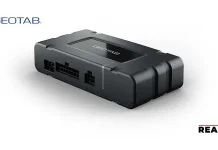Siemens unveiled a new sustainable, EV charging concept structure designed for electrifying fleets and high demand charging applications at scale. The new VersiCharge XL concept was created to electrify new or existing parking lots and building structures quickly and efficiently by using a modular, scalable design made in partnership with Nexii Building Solutions (Nexii) using their proprietary, sustainable building material with low carbon footprint. The solution, which resembles a modern-day fueling station, was developed in late 2021, and then installed in only three day at Siemens’ R&D hub eMobility and North American Headquarters for Electric Products.
Also Read: Veniam Joins Forces With Tomtom to Solve the Data Bottleneck Problem in Connected Cars
Congresswoman Carolyn Bourdeaux said, “As more and more consumers choose to go electric, we must ensure that our communities have the infrastructure to accommodate electric vehicles. When I ran for Congress, I made a commitment to FutureFit our suburbs, and Siemens EV charging technology helps to deliver cost-effective electric charging in our community. With 2030 only 8 years away, it is critical we get to work building a network capable of supporting our climate goals and millions of new electric vehicles. That is why I strongly supported the Infrastructure Investment and Jobs Act’s historic down payment on building out an electric vehicle charging network, including $20 million for Georgia this year alone, and $135 million over the next 5 years.”
“We are proud that Siemens is part of Peachtree Corners’ Technology Park and continues to lead the way in the development of innovative electrical and eMobility technologies,” said City of Peachtree Corners Mayor Mike Mason. “It is these types of successful partnerships between Siemens and Nexii that will continue to lead our area, country and the world in the design and deployment of sustainable, environmentally friendly eMobility solutions and the development of a successful nationwide EV network.”
This innovative product was rapidly developed and co-patented with Nexii, a green construction technology company, and is the industry’s first EV charging system to house all necessary electrical infrastructure components that power EV chargers in an above-ground, enclosed, and low carbon structure. The above ground design requires minimal disruption to existing parking lots by eliminating costly, time-consuming, and substantial civics works and reduces on-site construction waste and environmental impact.
“With the ever-increasing demand for EV infrastructure across the United States and beyond, we recognize a real need for fast deployment, scalability, easy upkeep and reliability,” said John DeBoer, Head of Siemens eMobility, North America. “I’m proud of the work being done by this team in Georgia, a state recognized as a growing national hub for electrified transport innovation. This group is continuing to develop and deploy the infrastructure that will enable our country to embrace EVs at scale. Technologies like this system are proof that a nationwide EV network isn’t out of reach, and Siemens is helping make it a reality.”
The VersiCharge XL concept leverages proven power distribution technologies used indoors at locations like data centers and industrial facilities and elevates them above-ground in a weather-resistant, outdoor enclosure. With its scaling and versatile capabilities, this concept is designed to be installed to charge large numbers of electric vehicles using either level 2 or level 3 EV chargers in outdoor environments ranging from small office building parking lots to last mile logistic hubs, and up to a stadium parking lot.
The prototype was created using Nexii’s building material Nexiite, which has comparable properties to concrete with significantly less embodied carbon, as the vertical structure to support Siemens Sentron™ Busway systems that connect to power the EV chargers. The busway power distribution equipment is manufactured at Siemens 540-person manufacturing hub in Spartanburg, South Carolina.



